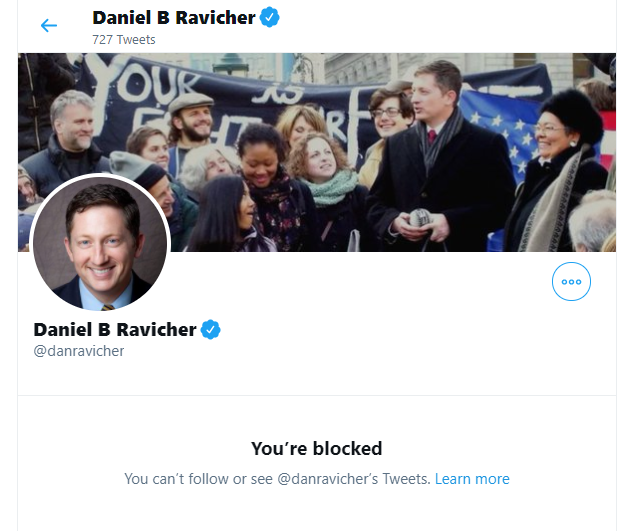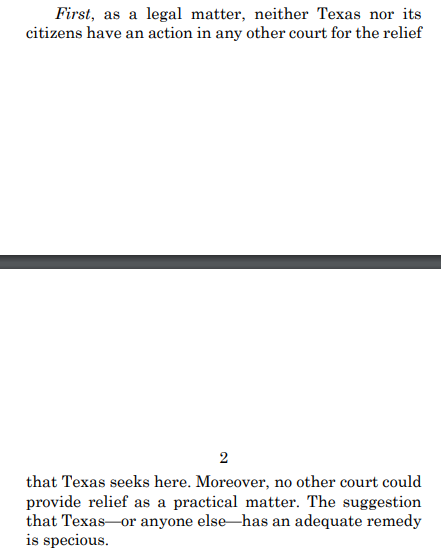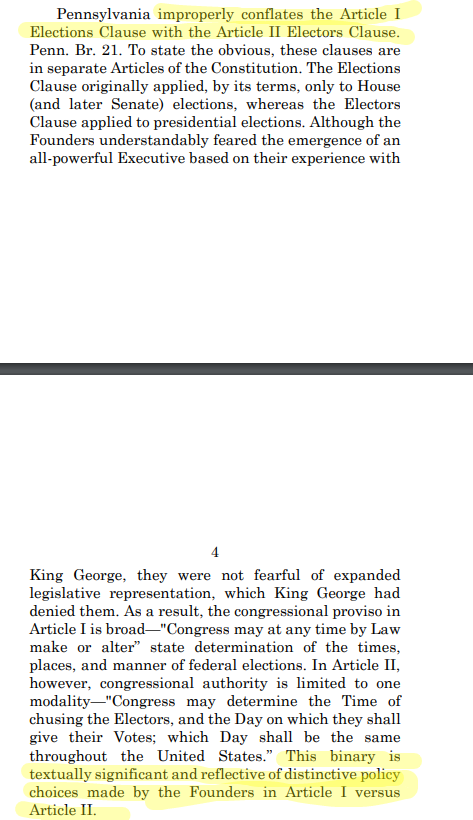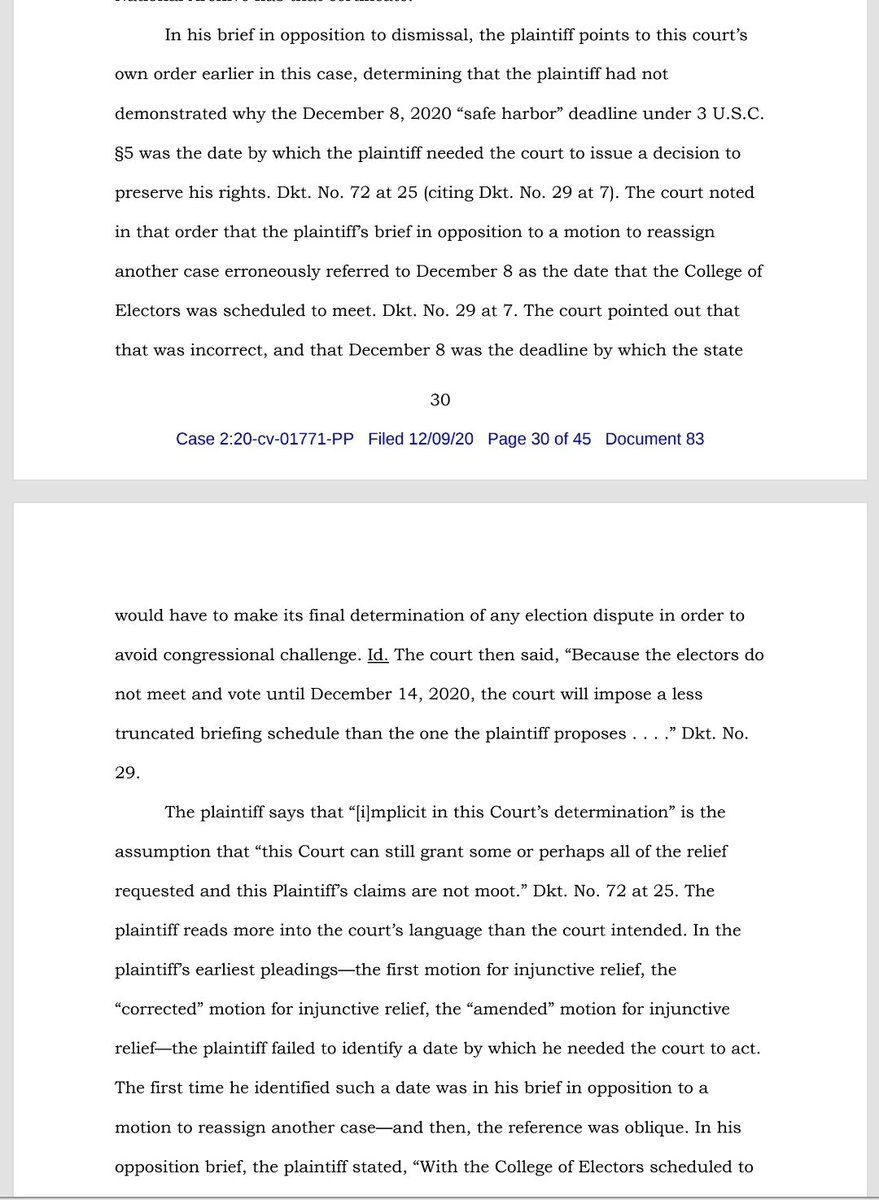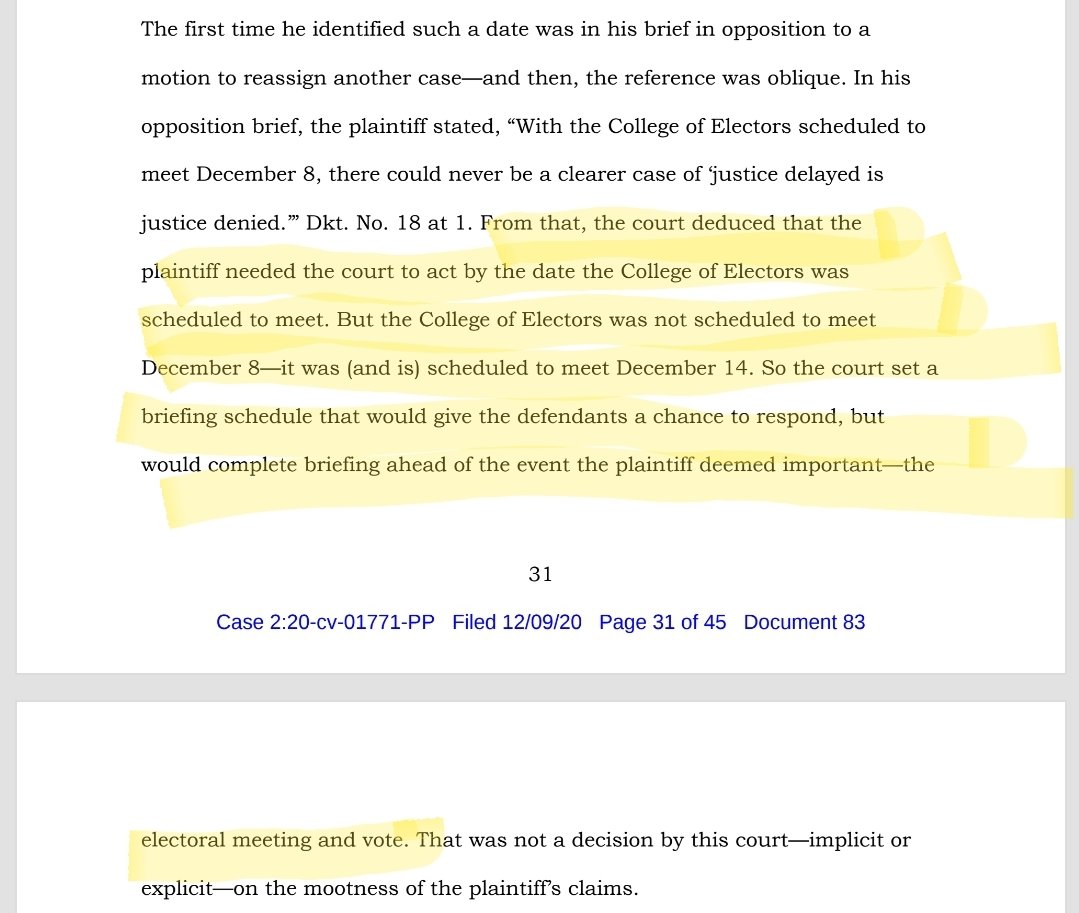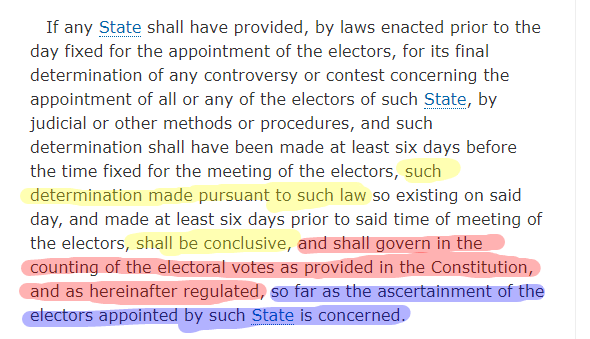
The Wisconsin Supreme Court issued a ruling today on its voting rules.
No, not the Trump case. The pre-existing case about absentee voting. Lets do a live-read. wicourts.gov/sc/opinion/Dis…
No, not the Trump case. The pre-existing case about absentee voting. Lets do a live-read. wicourts.gov/sc/opinion/Dis…
First of all, it's going to be complicated. 4 judges in the majority - the Republicans, including Hagedorn. 2 of the Dem judges joined as to two parts of the opinion - meaning they agree with some but not all of the reasoning. 2 Dem judges wrote separate opinions ... 

Concurring in part and dissenting in part - which basically means they agree with some but not all of the result reached by the majority, if not necessarily the reasoning. Of the Dems, Justice Walsh Bradley appears to be on her own on something. It will be interesting to see what
The majority starts off by recapping what the case is about: For 3 days in March, clerks in Dane County issued guidance that said "since Governor Evers issued a Safer at Home order, any voter can certify that they are 'indefinitely confined' and get an absentee ballot w/o ID" 

The Republican party sued, and 3 days later the Wisconsin Supreme Court enjoined that guidance and said "the Wisconsin Election Commission guidance [that the pandemic MAY make a voter indefinitely confined] is appropriate"
This is the final decision in that case
This is the final decision in that case
Here's the majority's conclusion. For those wondering how this impacts the Trump case: (1) this adopts the WEC guidance Trump challenged and (2) therefore makes clear that any challenge to voters claiming the status would have to be on a voter-by-voter basis.
Not good for Trump
Not good for Trump

The next segment is detail on the background, which I'll mostly skip. Except this may be foreshadowing. 

Section II is the meat. Remember that the two Dem judges who joined the majority opinion signed on for II.C and II.D. So what are A & B? The standard of review and mootness 

This implies that the disagreement on the court may (is likely to) be on broader procedural stuff - how much deference should courts give to a Wisconsin agency interpretation? When is a case mooted by changes in status? - rather than the substance
(The only reason I say "may" is because I don't know if there are other substantive sections beyond II.C&D. If not, then the procedural stuff is the only dispute)
As to mootness: Basically, the state had stipulated that the Dane County guidance was wrong, and the clerk had rescinded the guidance. The Wisconsin Supreme Court said "well, we're not bound by stipulation so we'll issue a ruling anyway, and a clerk might go back to the wrong...
guidance in a future election, so we're going to address it."
I think that's more an advisory opinion and probably wouldn't have agreed with that approach, but that's not an issue for election watchers to worry about.
I think that's more an advisory opinion and probably wouldn't have agreed with that approach, but that's not an issue for election watchers to worry about.
Now we get to II.C, the interpretation of the Election Statutes - important to realize that this part of the opinion was NOT partisan - it was decided at worst 6-1 (we don't know until we read Walsh Bradley's opinion where she stands on it)
Wisconsin, unlike Pennsylvania, is remarkably strict about absentee voting - screw up on a procedural requirement and your ballot gets tossed. Again, this is 6 judges saying this 





The rest of Section IIC merely summarizes the law on absentee ballots and indefinitely confined status 



II.D (again, 6 judges agreeing) gets us to the analysis. In a nice legal writing trick that too many lawyers have apparently forgotten, it recapitulates the executive summary up at the top: here's what we hold 



They reiterate what is basic and apparent from the text of the statute itself: Wisconsin's legislature left "indefinite confinement" status to individual voters to choose.
That note that the WEC is statutorily authorized to issue guidance does not bode well for Trump either


That note that the WEC is statutorily authorized to issue guidance does not bode well for Trump either



Oh, this is interesting. They're punting on defining "indefinitely confined" - just saying that the mere existence of a pandemic, stay at home order, or not having ID doesn't make you disabled, ill, or infirm (which, um, seems obvious) 



Next they get to a really interesting statutory interpretation issue: When the statute says "indefinitely confined because of age, illness or infirmity" is that only the voter's "age, illness, or infirmity" or *anyone's* if, as a result, the voter is "indefinitely confined"? 





I'll be honest, I think they got this one right but the statutory language makes it a close call - closer than they seem to think., IMO
And that's it, which means our dissent-in-parts seem to be all limited to the procedural issues.
I'll give them a read and highlight anything noteworthy, but I'm not going to livetweet it
I'll give them a read and highlight anything noteworthy, but I'm not going to livetweet it

Oh - oops. I misread the opening note. The Dem judges joined in only on II.D.1 - they did not join in the holding that "indefinitely confined" means only for the *voter's* age, illness, or infirmity. Here's the opening of Judge Walsh Bradley's opinion 

And this is a nice true-to-life example of what's at stake here. I have friends who are both quarantining because one member of the couple has serious health issues; under the majority's interpretation, only the sick spouse is "indefinitely confined" though both are shut in 



That doesn't mean I think Walsh Bradley's read of the statute is correct - but this isn't a trivial issue.
And here's Dallett's concurrence-in-part and dissent-in-part, which makes clear why Walsh wrote separately: unlike Walsh, Dallett (and Karofsky, who joined) don't say how they think the "confined by someone else's illness" question should play out 




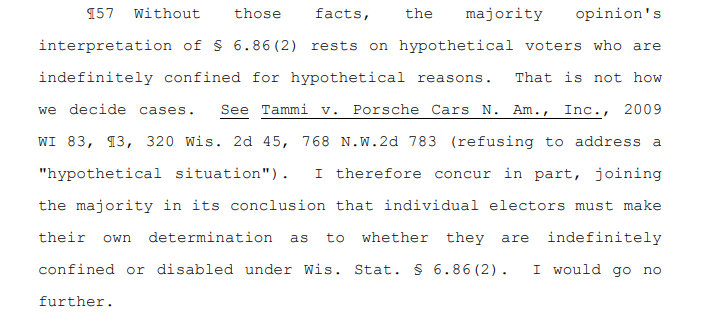
Interesting case, won't have any impact on the election
• • •
Missing some Tweet in this thread? You can try to
force a refresh

